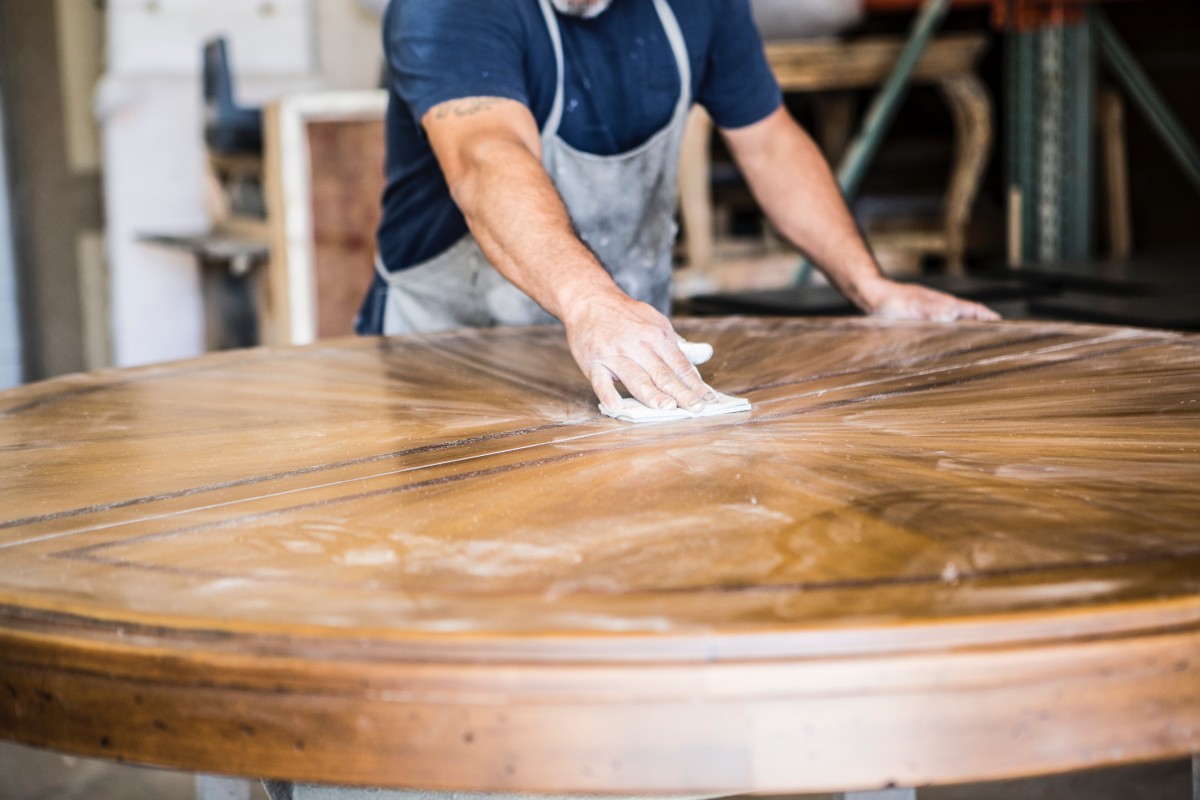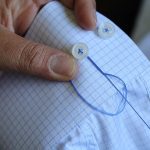
4 Steps to Sand a Table
Summary
– Step 1: Prepare the table before sanding
– Step 2: Prepare your environment and protect yourself
– Step 3: Sanding a table
– Step 4: Sand hard-to-reach areas of the table
– Step 5: Do the finishing touches
Sanding a table is done as part of a renovation. Wear and tear and the elements may have damaged the table’s wood. To give a new life to your table, you will have to sand it and then apply a new coating (paint, varnish) once the wood is exposed.
You can do sanding in two ways: either by hand with a sanding block or with a vibrating or belt sander, then with an angle sander.
Good to know: Do you need to buy a vibrating or belt sander but have trouble choosing from the many models available? We have selected for you 5 vibrating sanders and 5 belt sanders. All you have to do is compare.
1. Prepare the table before sanding
First, check your wooden table for cracks or holes from wear and tear or weathering.
If so, you must fill them with wood filler. This ready-to-use paste is sold in tubes or jars.
To do this:
– Place a dab of wood filler on the cracks or holes to fill them.
– With a coating knife, smooth the wood paste and let it dry for 24 hours.
2. Prepare your environment and protect yourself
– If sanding indoors, protect the furniture with old sheets, polyethylene film, or tarps.
– Close your workplace doors to prevent dust from entering other rooms.
– Caulk the groove between the door and the floor with a towel.
– Work with the windows open and protect yourself with a mask to avoid inhaling sanding dust and protective glasses and gloves.
3. Sanding a table
Hand sanding

If you choose to hand-sand:
– Attach your medium-grit sandpaper to the wooden shim. Often, these blocks are self-gripping and allow a simple and fast fixing of the sanding paper.
– First, sand the top, the legs, and the table’s edges.
– Sand your table with smooth, even strokes.
– Sand the wood in the direction of the grain to avoid splintering.
– Then, sand your table with fine sandpaper. Your table should feel smooth to the touch.
Electric sanding

To save time on an average surface, use an electric sander.
To move around the table easily during sanding, connect the plug of the chosen sander to a 5 or 10 m extension cord.
– Fit the medium grit belt or sheet to the belt sander.
– Sand the entire table, following the direction of the wood grain.
– Then, fit the belt or fine-grain sheet to the same sander.
– Sand your wooden table again.
– The wood should feel smooth and free of bumps.
– If the table has a few rough spots, proceed with new sanding.
Be careful: don’t stay too long in one spot. You risk marking the wood by digging it out.
4. Sanding hard-to-reach places on the table
If you want to sand an area that is difficult to access with a belt sander (such as the corners of table edges), use an angle sander.
– Attach a triangle of medium grit sandpaper to the triangular sander shoe (it should be the same size as the sander shoe).
– Sand any hard-to-reach areas.
– Then, change the medium-grit sandpaper for fine-grit sandpaper.
– Sand the hard-to-reach areas of the wood again.
– Check that you have sanded the wood properly by touching it: there should be no roughness, and the wood should be soft to the touch.
5. Finish it off
Once you have finished sanding the table, vacuum the entire table to remove most of the wood dust.
Then wipe the entire sanded table with a damp cloth to remove any remaining dust. The moisture in the fabric will hold the dust.
All that’s left to do is put your choice’s covering on your table.
Equipment for sanding a table
Vacuum cleaner
Tarp
Sanding block
Cloth
Coating knife
Gloves, goggles, and mask
Sanding paper for sander
Wood paste
Belt sander
Angle sander
Electric extension cord
Towel











